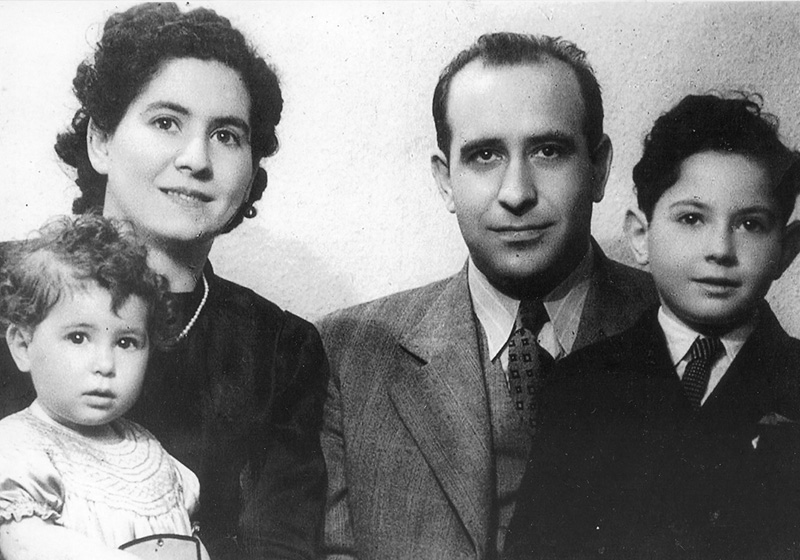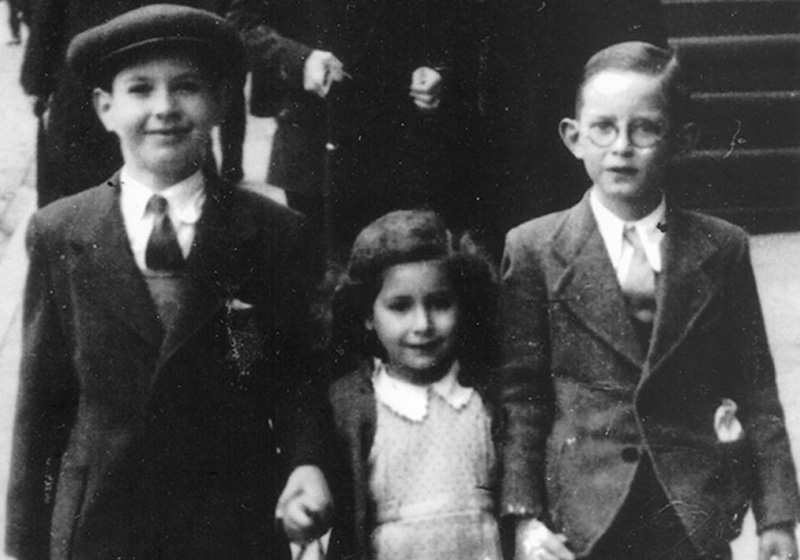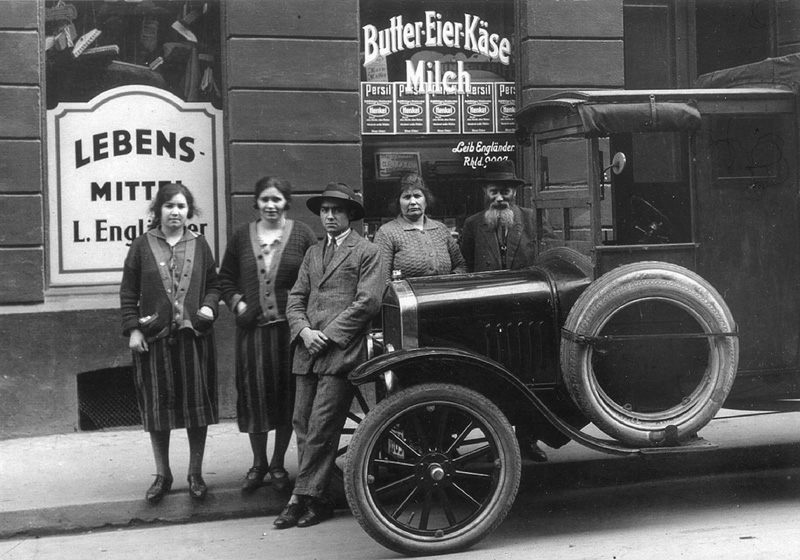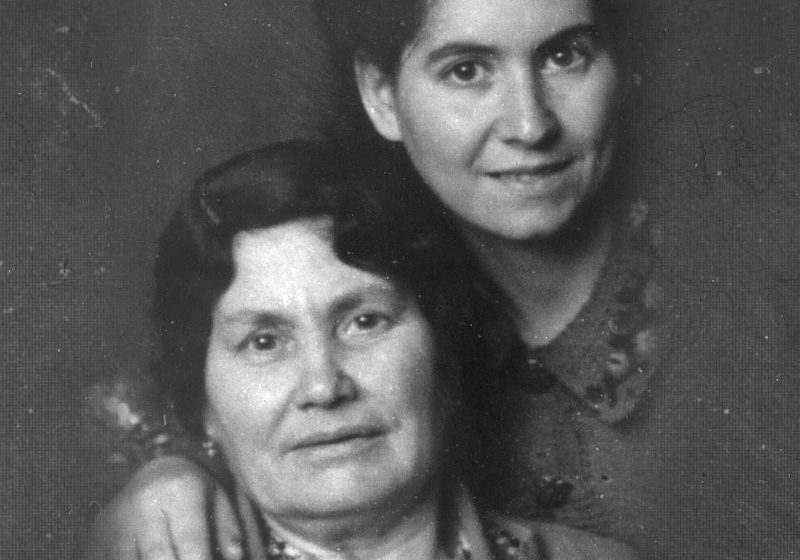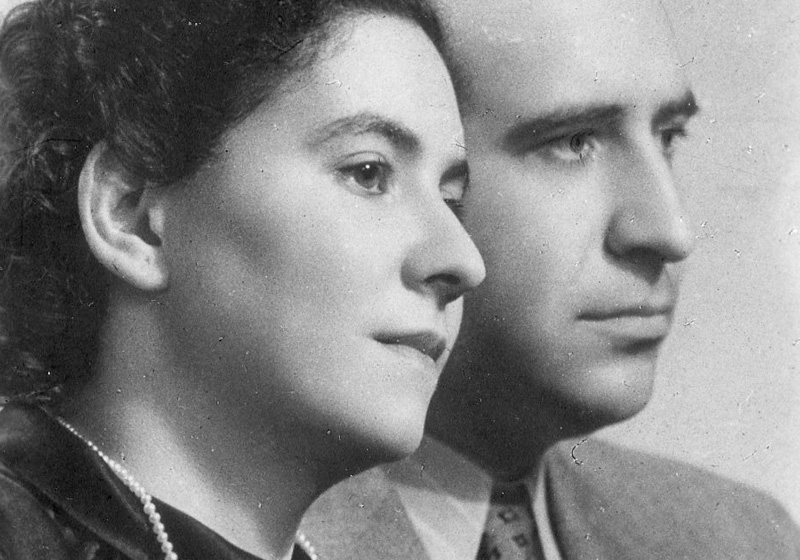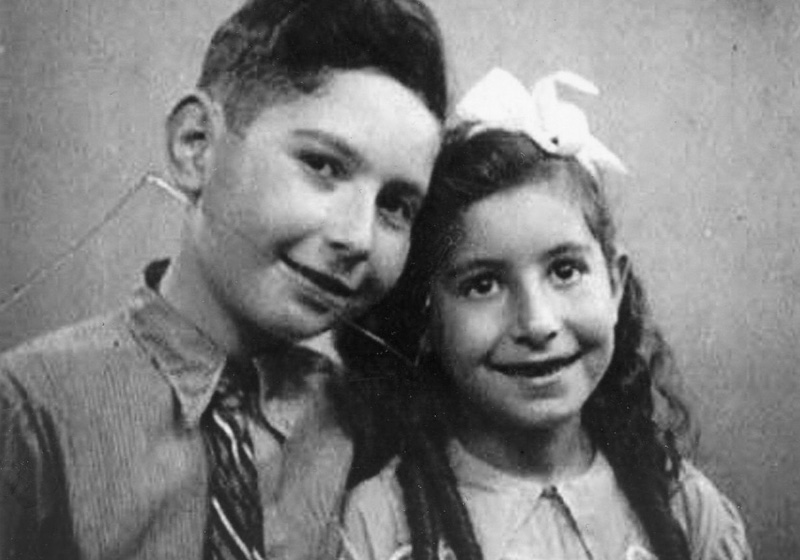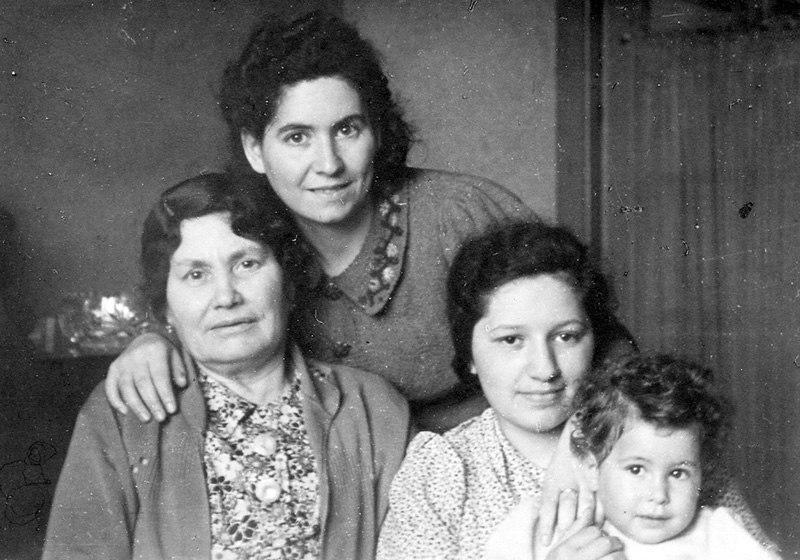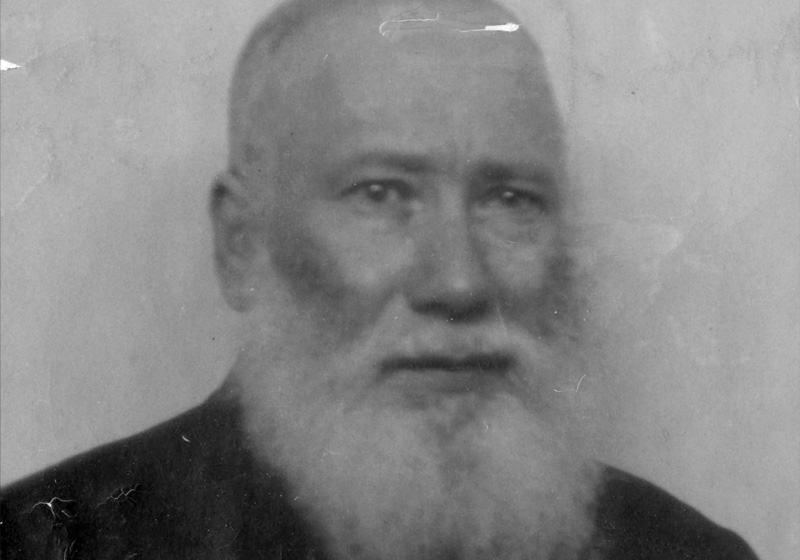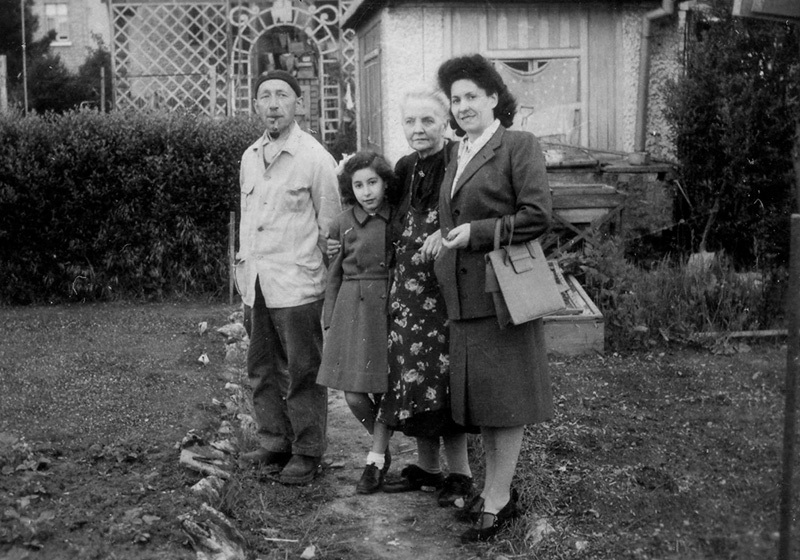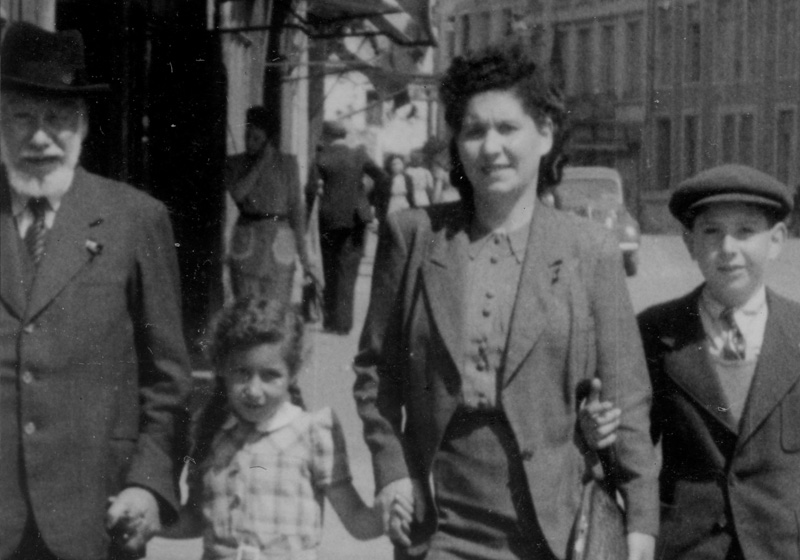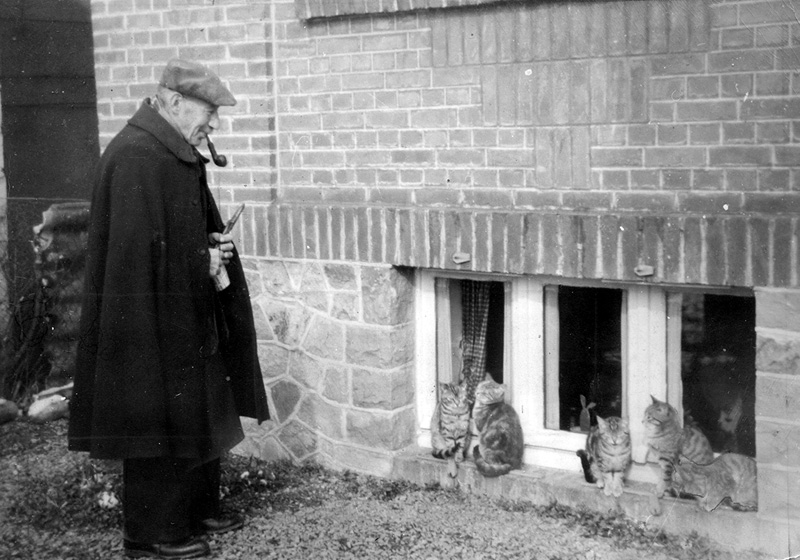"Remember Your New Name "
Surviving the Holocaust under a False Identity
Hudes Birnbaum and her children lived under assumed identities in Belgium
Henry Birnbaum was born on 14 September 1932 in Cologne, to Joel and Hudes Birnbaum, both from Radomysl Wielki, Poland. He grew up in Antwerp, Belgium, and had a younger sister, Charlotte (b. 1937). They were reasonably comfortable, and were Zionist and religiously observant.
When Germany invaded Belgium on 10 May 1940 the Birnbaums and some of their relatives set out to flee from the German advance. They managed to enter France, at which point Henry's father and uncle boarded a ship bound for England, which departed before the rest of the family could join them. After the Germans occupied France, they returned to Antwerp.
Over the next two years, the Germans issued a series of progressively more severe decrees against the Jews, culminated with the compulsory wearing of the Yellow Star in June 1942.
A few weeks after the Yellow Star was introduced, unemployed Jews began receiving summonses to report to Mechelen, a town some 20 kilometres from Antwerp. As the number of people reporting became progressively less, and did not meet the Germans’ target, they began to round up Jews. They would cordon off a few streets, and drive the Jews from their homes into waiting lorries. If necessary, they would smash down the doors and haul the Jews out of their beds, including the old and the sick.
As the situation became increasingly untenable, the family made the decision to go into hiding.
Hudes Birnbaum and her sister-in-law Rachel Kohn managed to obtain false papers, which were of fairly poor quality. The main problem was that the original had been stamped with a (circular) stamp of the local authority and this stamp also covered part of the holder’s photograph. The new photo now lacked the quarter circle stamp of the original. Henry recalled that his grandfather completed the stamps by hand on the two photographs with a coloured pencil. They only managed to obtain two cards, with none for Hudes's elderly parents or the two children.
On 6 October 1942, they were taken to the south of Belgium by someone who assured them he had found them a hiding place. In actual fact, he merely drove them to the village of Godinne sur Meuse, and knocked on a few doors until he found an apartment to rent. Joseph and Leonie Morand were an elderly couple who lived on the ground floor, and were only too happy to rent out their first-floor holiday flat.
The Morands soon discovered that these were no ordinary holidaymakers. The family never left the apartment, and they asked that all their food be bought for them on the black market, which was illegal and punishable.
One day, three months after they arrived, there was a knocking on the front door, and two Wehrmacht officers entered. Only seeing Hudes and Rachel, they accused them of being Jewish, which they denied and showed their amateurish false papers. The Germans eventually left, pronouncing themselves not satisfied with the answers, and said they would return.
Within minutes, seemingly all the villages for miles around had heard of the visit. It was January, the middle of winter, and the six Jews had nowhere to go. Although their friends reportedly told the Morands to evict them, he refused, saying: “The good Lord sent them to me, I’m not going to throw them out”.
The same scene was reenacted about a week later when the officers returned. Once again, with two elderly, sick people in bed and the two children hiding terrified underneath, Hudes and Rachel managed to convince the Germans, and they left empty handed.
Over the two years they spent in hiding in Godinne, the family observed the Sabbath and Jewish festivals. Henry remembered his grandfather racking his brains for many sleepless nights trying to remember the rules of the calendar, in order to establish the dates of the festivals. For Passover, Joseph Morand managed to get hold of some wheat and they baked matzot, making little holes in the flattened dough by running a special gadget which their grandfather had constructed, with a toothed wheel from a clock.
The six Jews living in the Morands' home never fell into Nazi hands. Henry's grandmother's condition worsened while in hiding, and she was eventually brought to hospital in Antwerp, where she passed away alone.
After liberation, the family was reunited, and eventually moved to England. In 1982, Joseph and Leonie Morand were recognized by Yad Vashem as Righteous Among the Nations.
In 2021, Charlotte (Birnbaum) Weber and Henry's daughters, Amanda Smulowitz and Vivienne Kosowsky, donated family photographs to the Yad Vashem Archives as part of the "Gathering the Fragments" project, some of which are displayed here.

